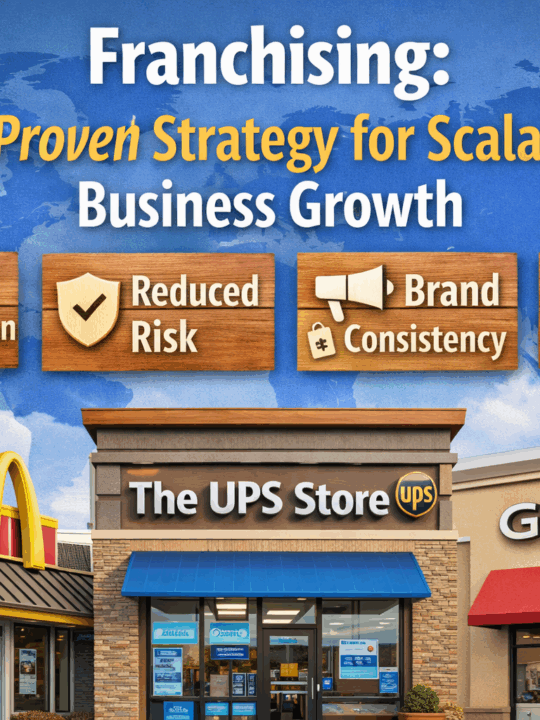
Table of Contents
- 1 Table of Contents
- 2 Why Closing Costs Matter in Real Estate Transactions
- 3 What Makes Up Closing Costs?
- 4 Common Mistakes Buyers Make With Closing Costs
- 5 Expert Insights: How Agents Cut Down On Costs
- 6 Negotiation Strategies That Work
- 7 Government Programs and Assistance Options
- 8 Real-Life Success Stories
- 9 Key Steps to Take as a Homebuyer
- 10 Final Thoughts
Table of Contents
- Why Closing Costs Matter in Real Estate Transactions
- What Makes Up Closing Costs?
- Common Mistakes Buyers Make With Closing Costs
- Expert Insights: How Agents Cut Down On Costs
- Negotiation Strategies That Work
- Government Programs and Assistance Options
- Real-Life Success Stories
- Key Steps to Take as a Homebuyer
- Final Thoughts
Why Closing Costs Matter in Real Estate Transactions
For anyone considering buying a home, closing costs can be one of the biggest surprises. Unlike the obvious—and often anticipated—down payment, closing costs comprise various charges due on the big day when the property changes hands. These fees regularly amount to 2% to 5% of the home’s purchase price, translating to thousands, sometimes tens of thousands, of dollars added to what buyers need to bring to the table. This is why understanding, budgeting for, and, most importantly, minimizing closing costs is crucial for buyers hoping to make the smartest investment possible without draining their savings. Many buyers turn to proven local specialists such as Arcata, CA real estate experts The Land Man Office for support in navigating the complexities of the closing process. Drawing upon experience and carefully honed negotiation skills, seasoned agents have repeatedly demonstrated how buyers can uncover savings hidden within the myriad fees. Trusted professionals can demystify the fine print, spot unnecessary add-ons, and devise a tailored closing strategy to help buyers keep more cash in their pockets—and keep stress levels at a minimum.
What Makes Up Closing Costs?
Closing costs are rarely a simple, single fee. Instead, they comprise a collection of mandatory expenses and negotiable services. Some of the main components often include:
- Loan origination and underwriting charges are fees imposed by lenders for initiating and processing the mortgage loan. These can sometimes be negotiated or reduced, but they often require strong relationships or a willingness to comparison shop.
- Title insurance and title search: Essential for protecting both the lender and the new owner against undisclosed legal claims to the property. Shopping for title insurance or choosing a less expensive provider can generate meaningful savings.
- Appraisal and home inspection fees: Most lenders require an accurate, neutral assessment of a property’s value (and condition). While these fees are necessary, their actual amount can vary by service provider and market.
- Government recording and transfer taxes: State and municipal fees charged to officially record the change in property ownership are typically non-negotiable, but should be understood upfront.
- Attorney or escrow fees: In many states, attorneys review documents, or escrows manage the funds transfer. These rates can vary based on provider choice and transaction complexity.
- Prepaid taxes and insurance premiums: Lenders often require an initial escrow payment covering taxes and homeowners’ insurance for several months, which can add up quickly.
According to NerdWallet, understanding which fees you can influence or negotiate can impact the final cost, potentially saving buyers thousands.
Common Mistakes Buyers Make With Closing Costs
Many homebuyers—especially those making their first purchase—are blindsided by closing costs, either underestimating their total amount or not budgeting for them. A frequent pitfall is assuming that only the down payment and monthly mortgage rate matter, leaving no cushion for closing-day surprises. Failing to shop for necessary services like title insurance, inspections, or even lender fees can mean paying hundreds or thousands more than necessary. This lack of preparation is one of the main reasons first-time buyers run into trouble at closing. Sometimes, a deal can fall through at the finish line simply because the cash to close isn’t available. Reviewing all costs with your real estate professional, asking tough questions, and shopping smart for all services can help buyers sidestep unnecessary expenses and disappointment.
Expert Insights: How Agents Cut Down On Costs
The best real estate agents offer much more than access to property listings. Their expertise spans local market trends, the nuances of mortgage lending, and the detailed breakdown of every fee that appears on a closing statement. Agents use their established business relationships to recommend reputable vendors—often at pricing their clients couldn’t access. That might include a lower-rate title insurance provider, a competitive lender, or an inspector who bundles services for a reduced overall cost. A skilled agent will also carefully examine the buyer’s loan estimate and closing disclosure, looking for duplicated, unnecessary, or inflated fees. They don’t hesitate to challenge line items that appear out of place. Additionally, agents guide clients toward lenders that may offer credits to offset specific fees or even negotiate for credits from sellers to cover closing costs altogether. Their practical knowledge helps ensure fewer surprises and more savings for homebuyers.
Negotiation Strategies That Work
Smart negotiation doesn’t stop with the listing price—it extends to every aspect of closing costs. Asking the seller for concessions is one strategy that regularly pays off. In a buyer’s market, or when a property has lingered, sellers are often willing to cover part or all of a buyer’s closing costs. Even in hot markets, such requests can be successful, especially when presented as a way to seal the deal quickly. Another cost-saving approach involves comparing multiple lender loan estimates. Even slight differences in origination or underwriting fees can add to significant savings. A careful review of these documents can reveal negotiable costs; sometimes, just asking for a fee to be waived—or adjusted—can work. Experienced agents often suggest timing the closing near the end of the month, reducing daily interest charges and the amount required in prepaid items, offering even more savings opportunities.
Government Programs and Assistance Options
Many buyers overlook the broad network of assistance programs designed to make homeownership more affordable. Popular mortgages backed by the FHA, VA, and USDA often have strict limits on lender fees and requirements, making them attractive to those seeking to reduce closing costs. Some loans require little or no down payment, easing upfront cash needs and helping buyers reserve funds for closing charges.
Additionally, various states, counties, and cities offer down payment or closing cost assistance programs—grants, zero-interest loans, or credits—geared toward first-time buyers, veterans, or those with lower incomes. Finding and securing support from these resources requires research. Still, a knowledgeable real estate agent can help buyers tap into local opportunities and ensure they don’t miss out on valuable aid.
Real-Life Success Stories
Real-world examples bring these strategies to life. Take the example of a recent homebuyer who realized they could shop for third-party providers after consulting with a trusted agent. By comparing lenders and negotiating reduced appraisal and legal fees, the buyer lowered their closing costs by $3,500. Their agent also recognized an opportunity to request a $4,000 seller credit, saving the client $7,500 on the transaction. These outcomes are typical when buyers commit to diligent research, ask for agent guidance, and are willing to negotiate every line item. Teamwork and knowledge can turn an intimidating closing process into a rewarding financial success.
Key Steps to Take as a Homebuyer
Homebuyers can proactively take control of their closing costs with a few focused strategies:
- Gather detailed, side-by-side loan estimates from at least three lenders to spot cost differences immediately.
- Review every line item on loan estimates and closing disclosures with your agent; question any that aren’t clearly explained.
- Contact independent providers for insurance and inspection services—don’t simply accept the first referral or bundled offer.
- Ask for seller concessions or credits, and don’t hesitate to request lowering or eliminating unnecessary fees.
- Research all available government and local assistance programs with the help of your agent for any qualifying bonus or grant.
- Schedule your closing toward the end of the month to lower prepaid interest charges and reduce cash-at-close requirements.
- Double-check documents for duplicate, padded, or “junk” fees and push back as needed.
These practical steps, paired with expert guidance, ensure every dollar spent at closing is necessary—and nothing more.
Final Thoughts
Closing costs can feel daunting, but buyers can significantly cut those expenses with thoughtful planning, thorough research, and guidance from a seasoned real estate professional. There are numerous ways to save, from negotiating seller concessions to selecting low-cost service providers and tapping into available assistance programs. Partnering with trusted experts ensures you’re making informed choices every step of the way. Buyers can move toward closing day more confidently by approaching the process with clarity and strategy. After all, every dollar saved is more than money—it’s a solid step toward long-term financial stability and homeownership success.







